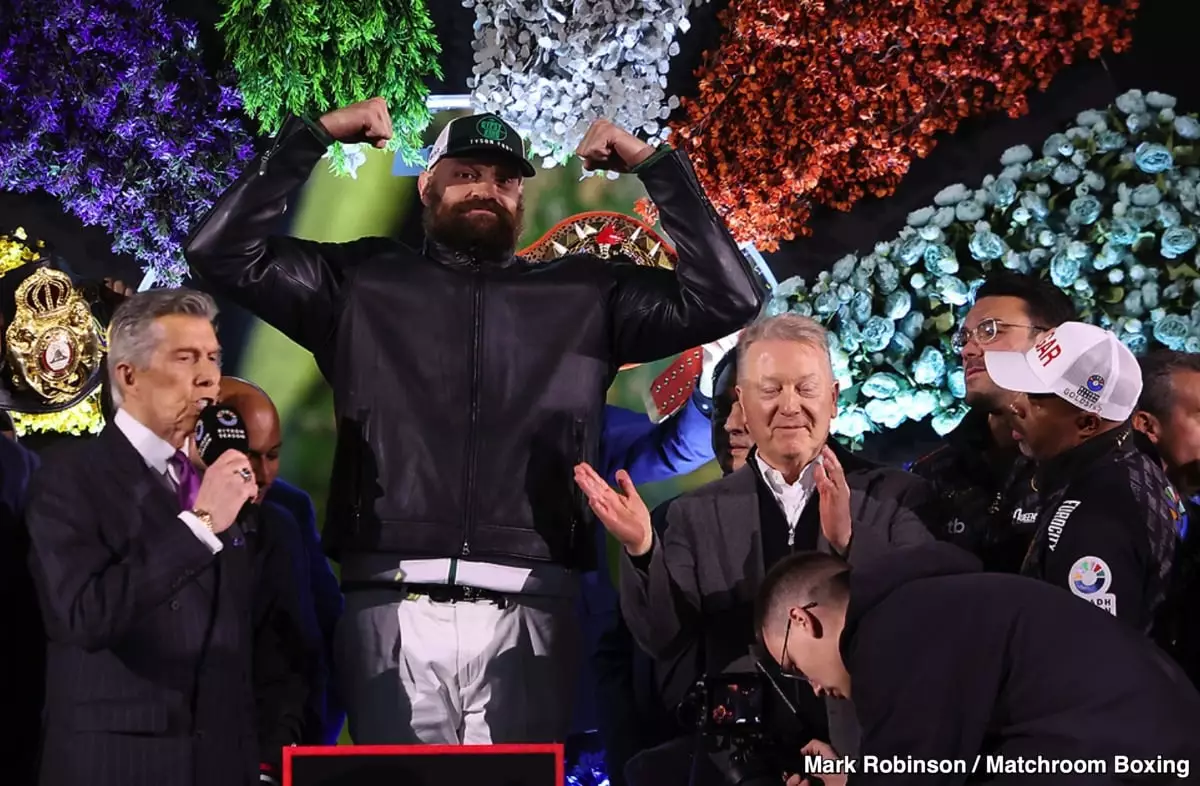The upcoming rematch between heavyweight champions Tyson Fury and Oleksandr Usyk has become a focal point of discussion among boxing enthusiasts and analysts alike. As we delve into the intricacies of their anticipated bout, it becomes clear that body language serves as a significant indicator of the fighters’ mental states. Analyzing their nonverbal cues offers valuable insights into their respective preparations, motivations, and likely performance in the ring.
In combat sports, psychological warfare plays an essential role alongside physical conditioning. The actions, expressions, and stances of fighters contribute to the narrative they wish to present, creating a persona that extends beyond mere athleticism. The weigh-in, often characterized by bravado and posturing, is a prime opportunity for fighters to engage in psychological maneuvers. For instance, Fury’s previously charismatic and flamboyant persona has recently taken a darker turn, which could affect his performance adversely.
Judi James, a noted body language expert, emphasizes that beneath the bravado lies the true measure of each fighter’s mindset. As both Fury and Usyk prepared for this face-off, their respective demeanors provided clues about their preparation and emotional readiness for the upcoming confrontation. The juxtaposition of Usyk’s calm confidence against Fury’s apparent inner turmoil suggests a divergence that could play a pivotal role in the match’s outcome.
Oleksandr Usyk’s body language presents a picture of tranquility mingled with steely resolve. His focused gaze and minimal blinking reflect a deep concentration that seems unshaken by the surrounding chaos. The analogy that Usyk emerged victorious in a mental duel during their stare-off rings true; his unyielding demeanor communicates a readiness that is both intimidating and inspiring.
More than just being physically prepared, Usyk’s open demeanor indicates he is emotionally fortified against any distractions or tactics that Fury may unleash. His gestures—like crossing himself for spiritual support and his flag display to signify solidarity—evoke a strong sense of purpose that transcends mere athletic competition. This enthusiasm not only fuels his confidence but also reveals a fighter who appears unaffected by mind games.
His relaxed yet assertive body posture during the weigh-in showcases a man not merely prepared for a physical contest but driven by deep personal convictions and motivations. When positive emotional undertones—such as the warm expression when his wife was mentioned—contrast sharply with Fury’s grim approach, it becomes evident that Usyk’s psychological advantage could be formidable.
Tyson Fury’s transformation from a vivacious showman to a withdrawn figure provokes concern among fans and analysts alike. This dramatic shift may not contribute positively to his psychic wrestling with Usyk. Observations reveal a fighter burdened by internal conflict and the pressures of expectation, perhaps attempting to present an intimidating front that feels inauthentic.
Fury’s diminished energy levels and subdued expressions—characterized by clenched fists and defensive postures—signal a man struggling to align his outward persona with his internal emotional state. His decision to hide his hands, often regarded as a sign of insecurity, reflects a desire to retreat from the spotlight rather than embrace it. When he engages in chewing gum, typically a stress-related behavior, it becomes ironic, hinting at anxiety rather than the calm vigilance necessary for a champion.
When Fury insisted on adopting a more sulky persona, the risk of over-suppression of his true self could backfire. While the sheer ferocity he exhibited in moments of heated confrontation speaks to his competitive spirit, it also raises questions about whether this raw intensity can be harnessed effectively in the heat of the battle.
As the rematch looms, the psychological landscape between Fury and Usyk seems increasingly fractured. While Usyk has shown himself to be a beacon of determination, Fury’s analytical wrestling with his identity as a fighter could cost him vital energy. Underestimating the importance of authentic self-expression in the ring can drift a competitor off course, distorting intentions and potential.
In analyzing their behaviors, one might conclude that Usyk’s consistency favors him more in a mental game ultimately played in the ring. However, the unpredictability surrounding Fury means that if he can overcome his internal dilemmas, channel his frustrations effectively, and return to the dynamic fighter he is known for, he remains a contender worthy of respect. In the end, the outcome of this encounter will hinge not just on whose punches land better, but whose mental resilience holds strongest under the unforgiving lights of the boxing arena.


Leave a Reply